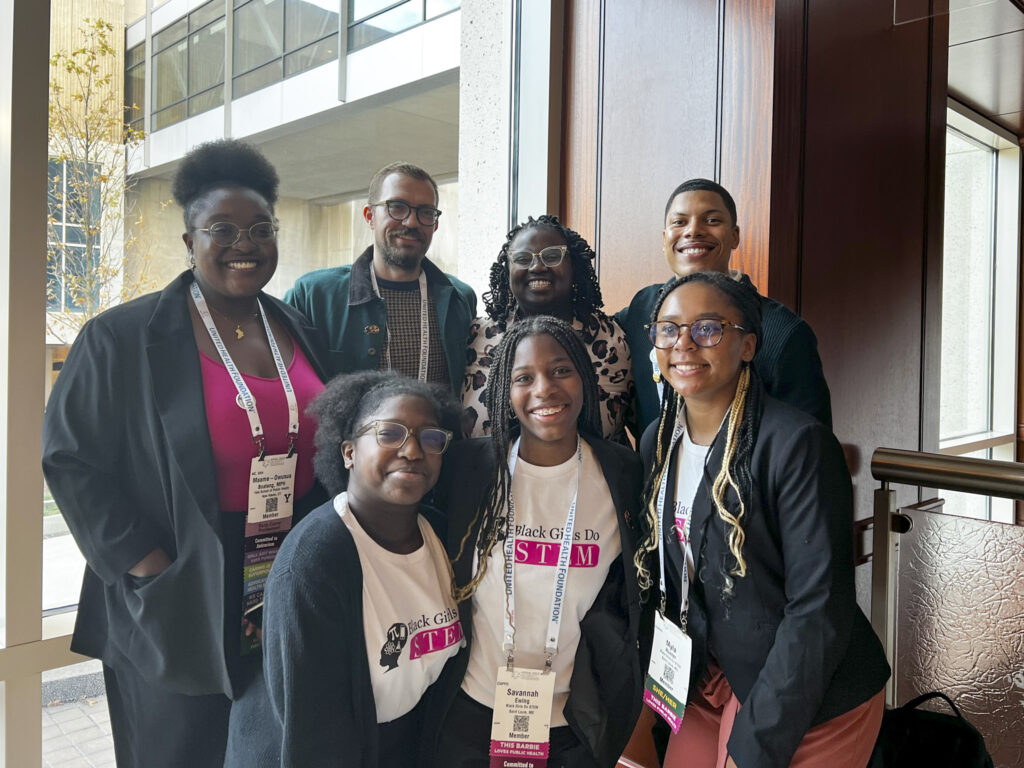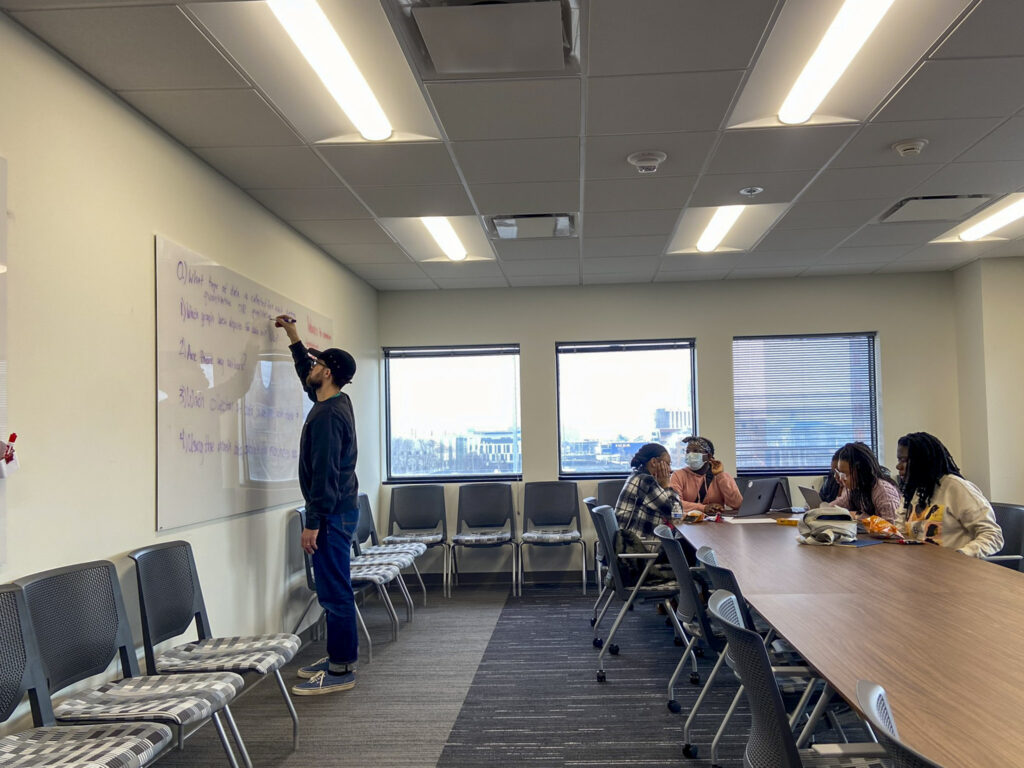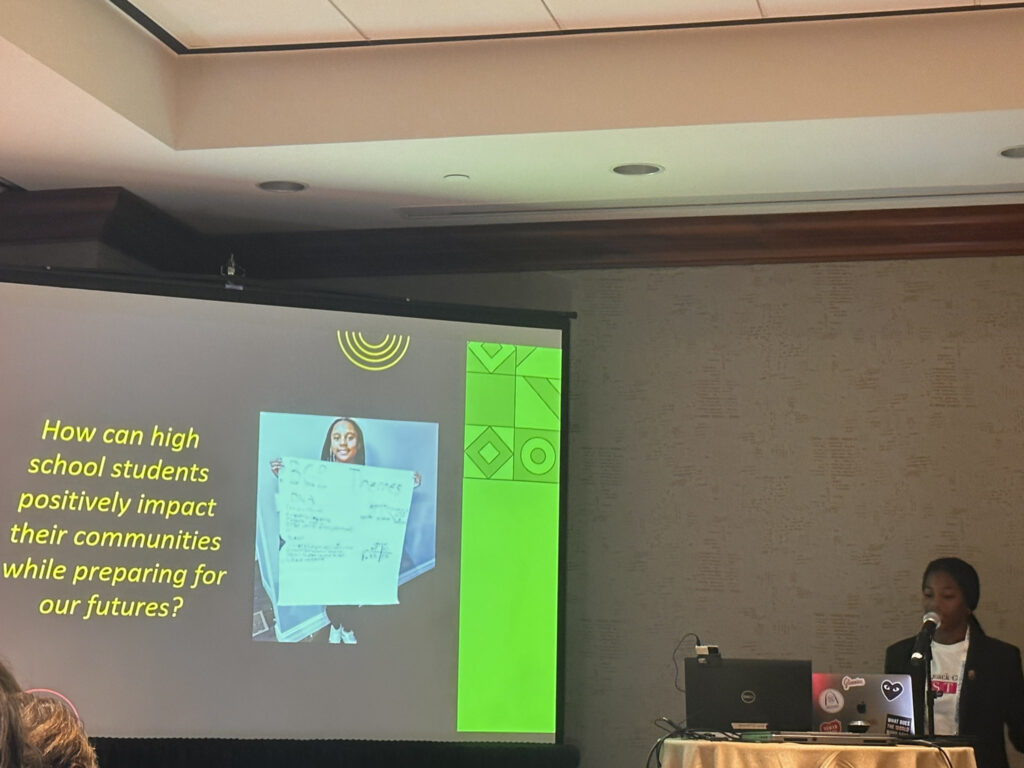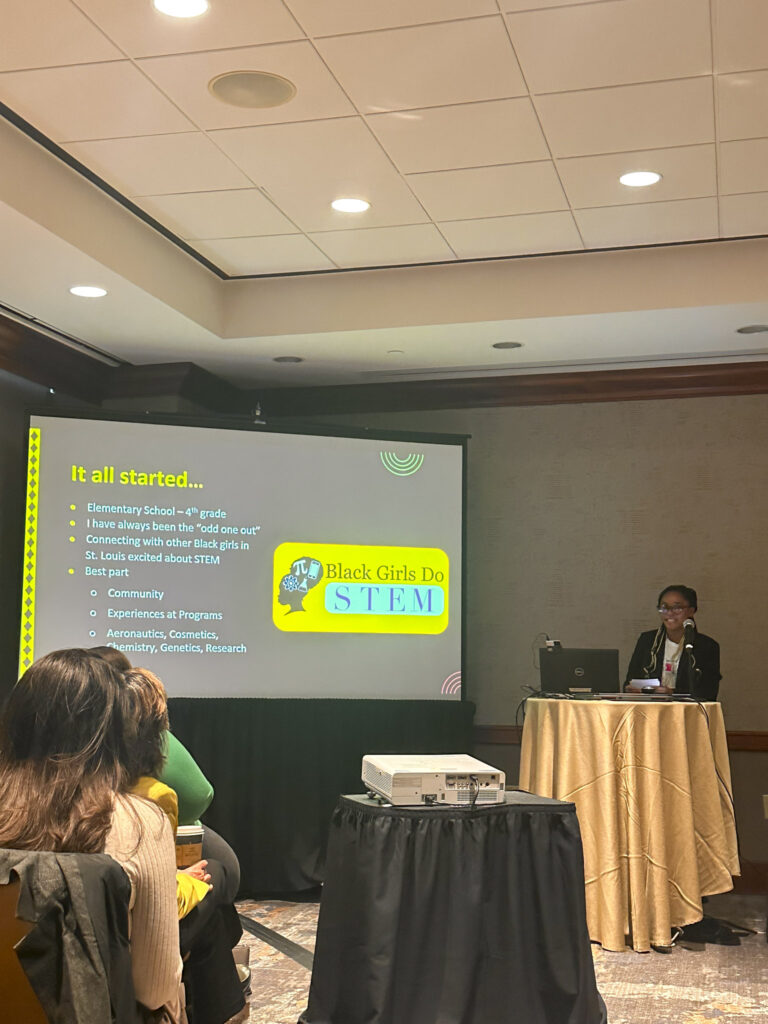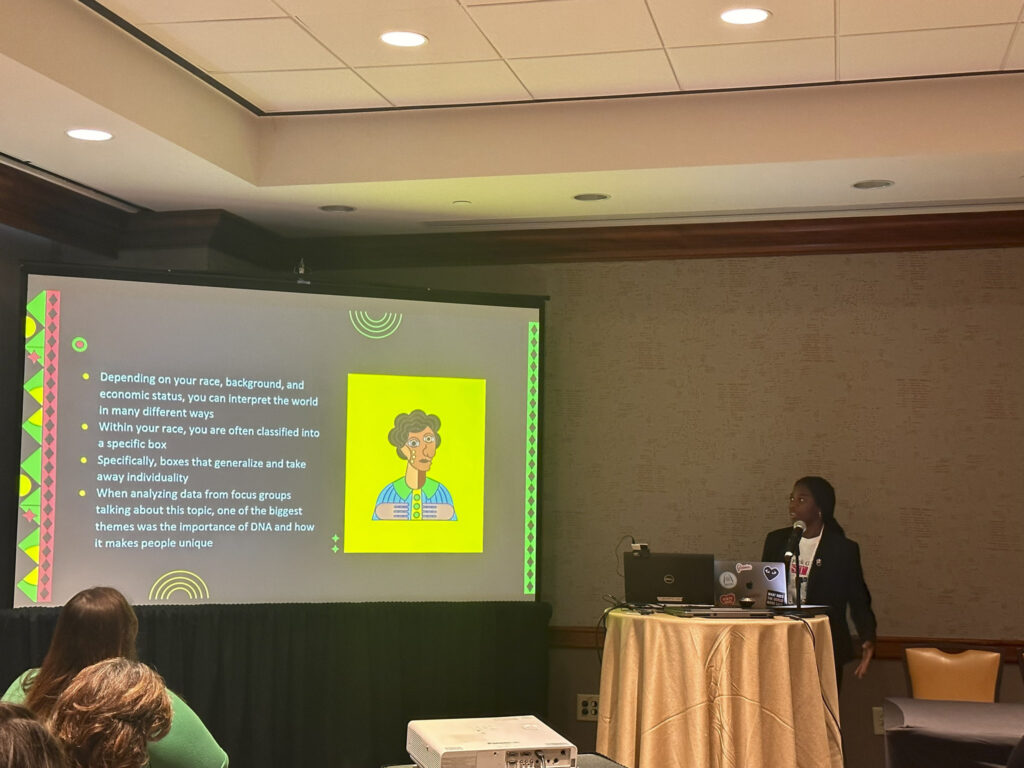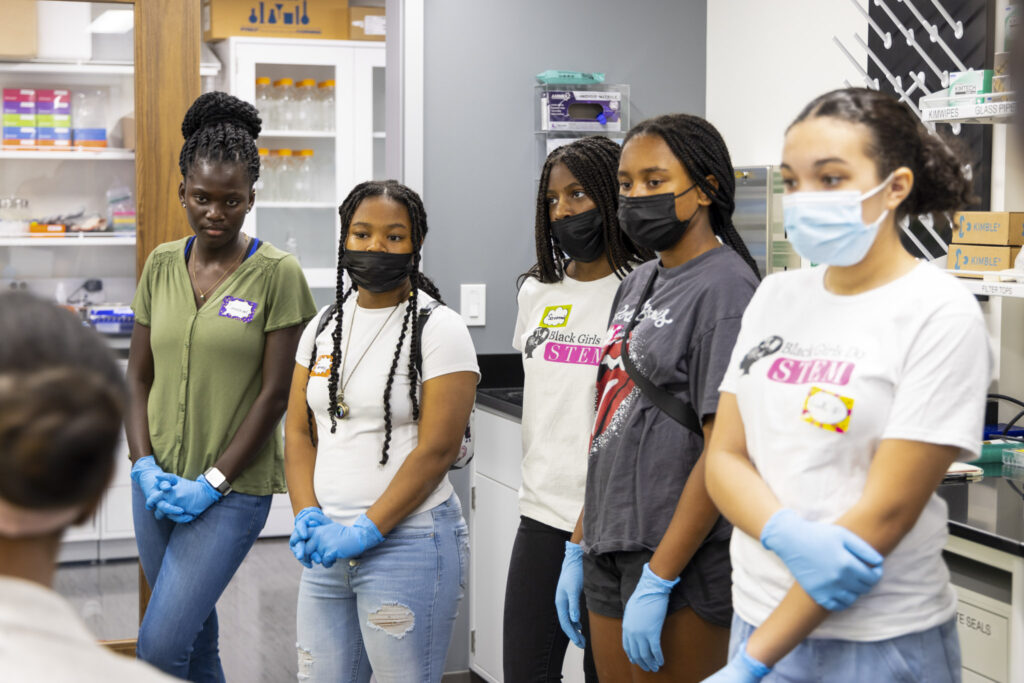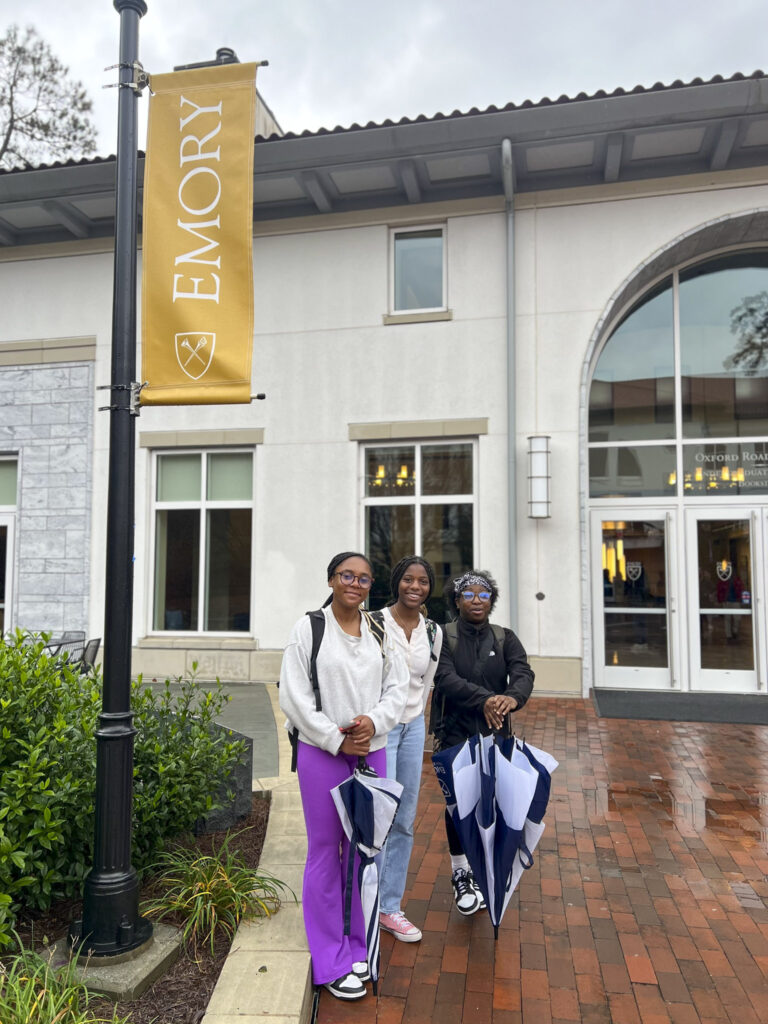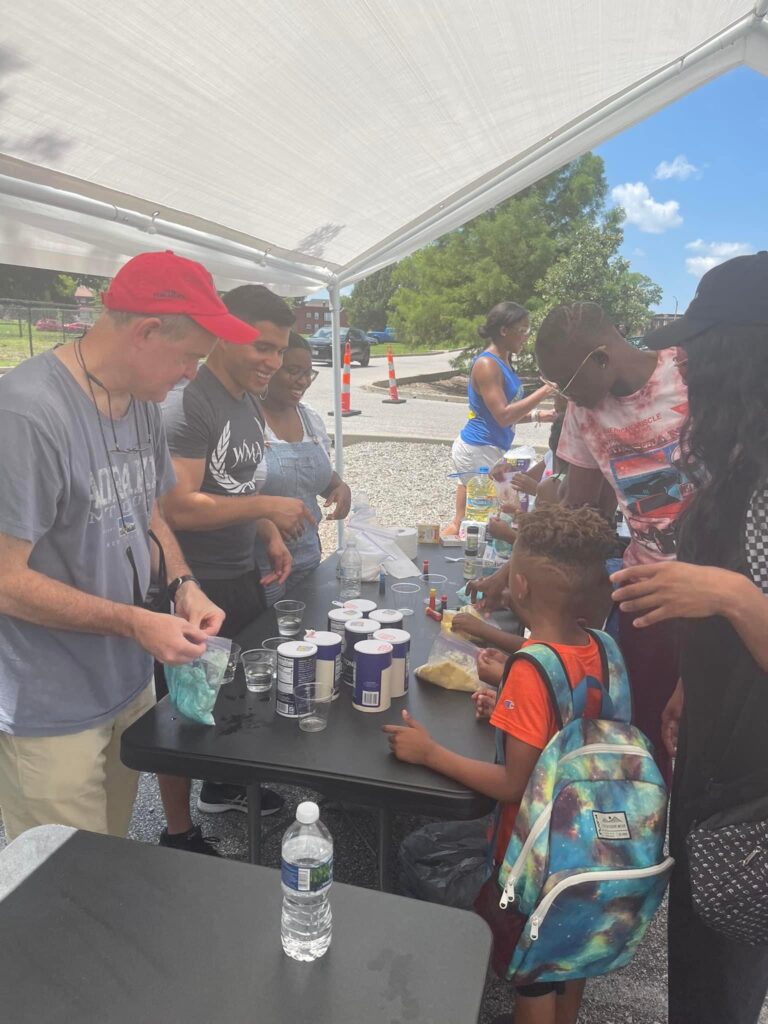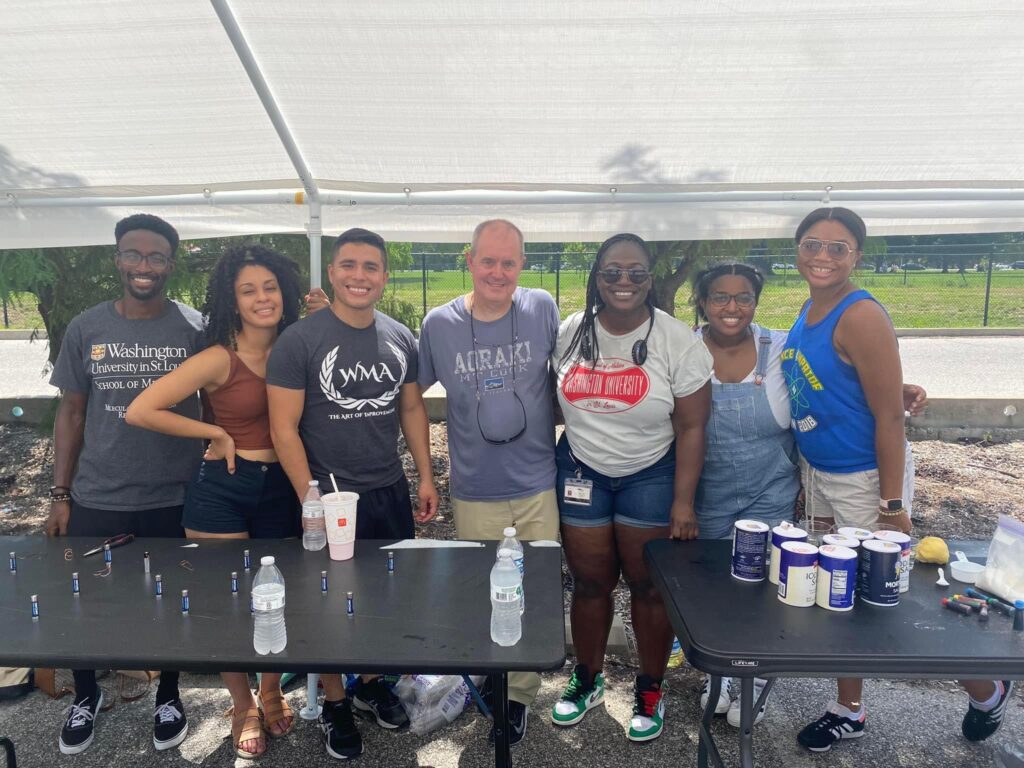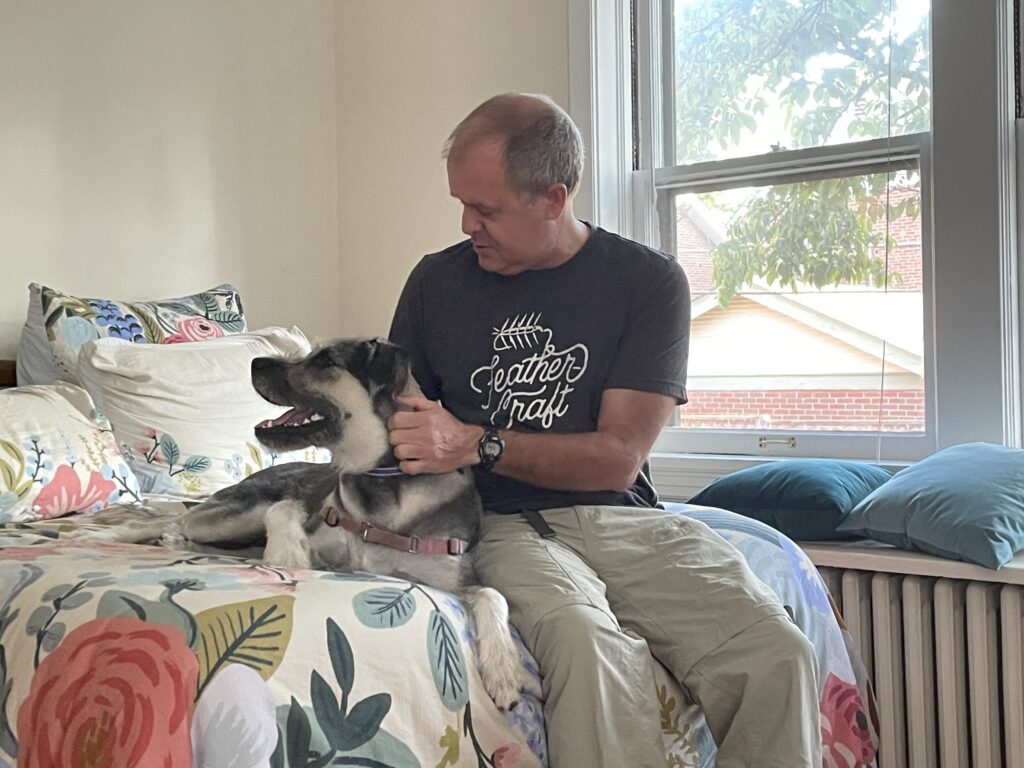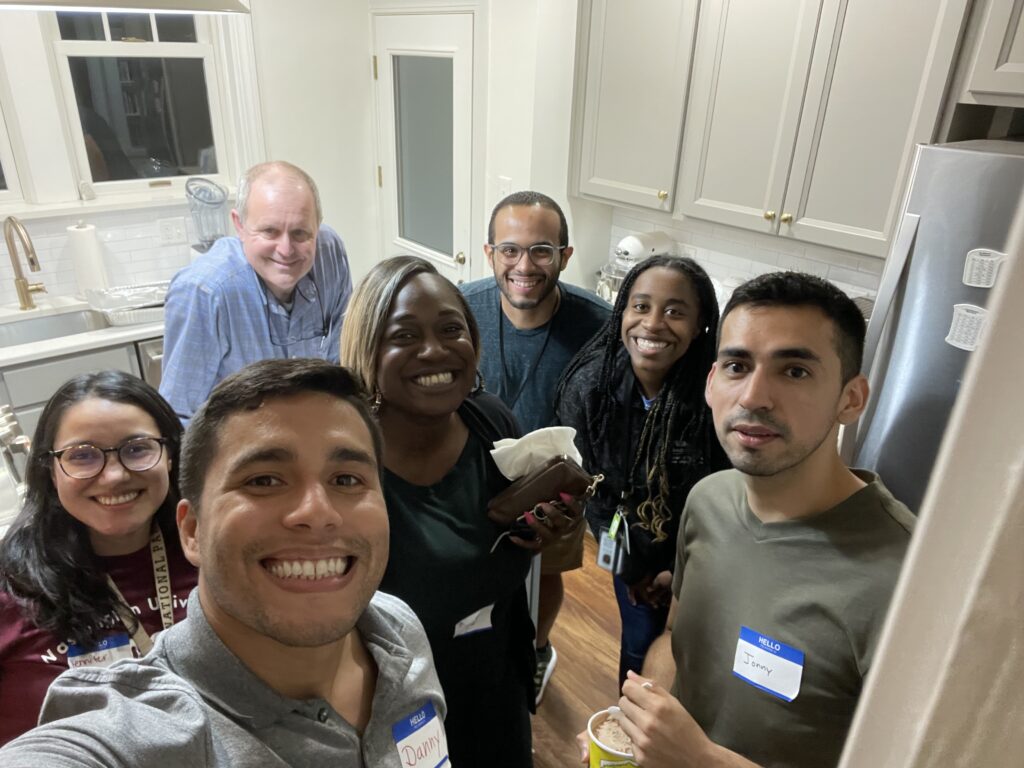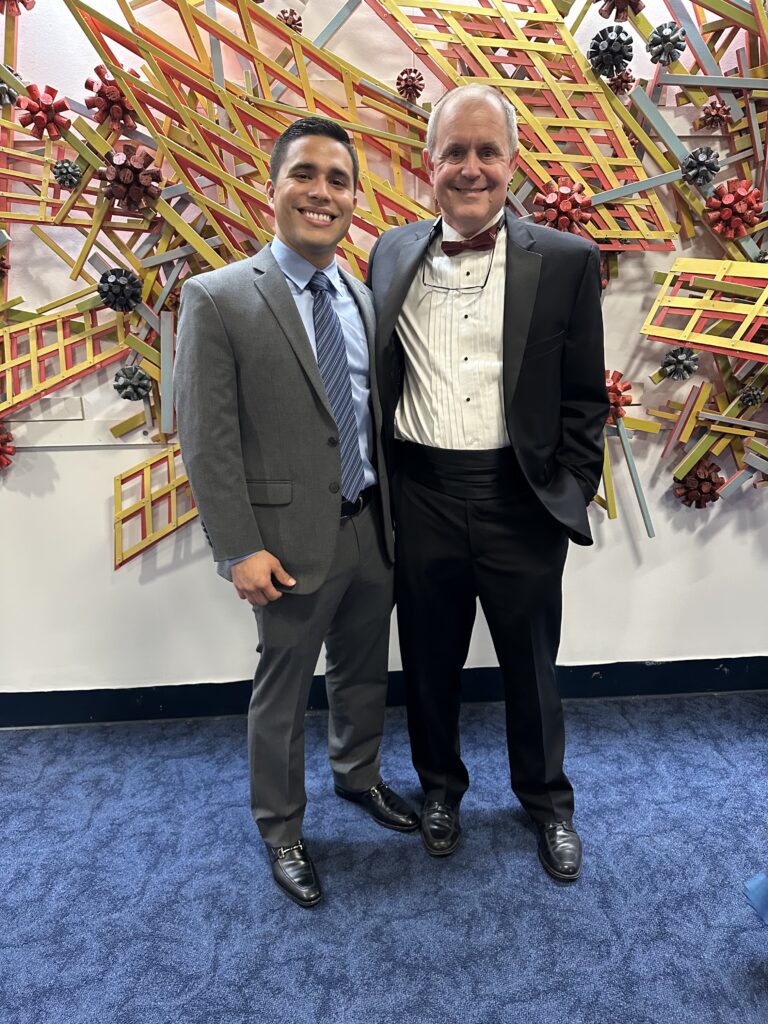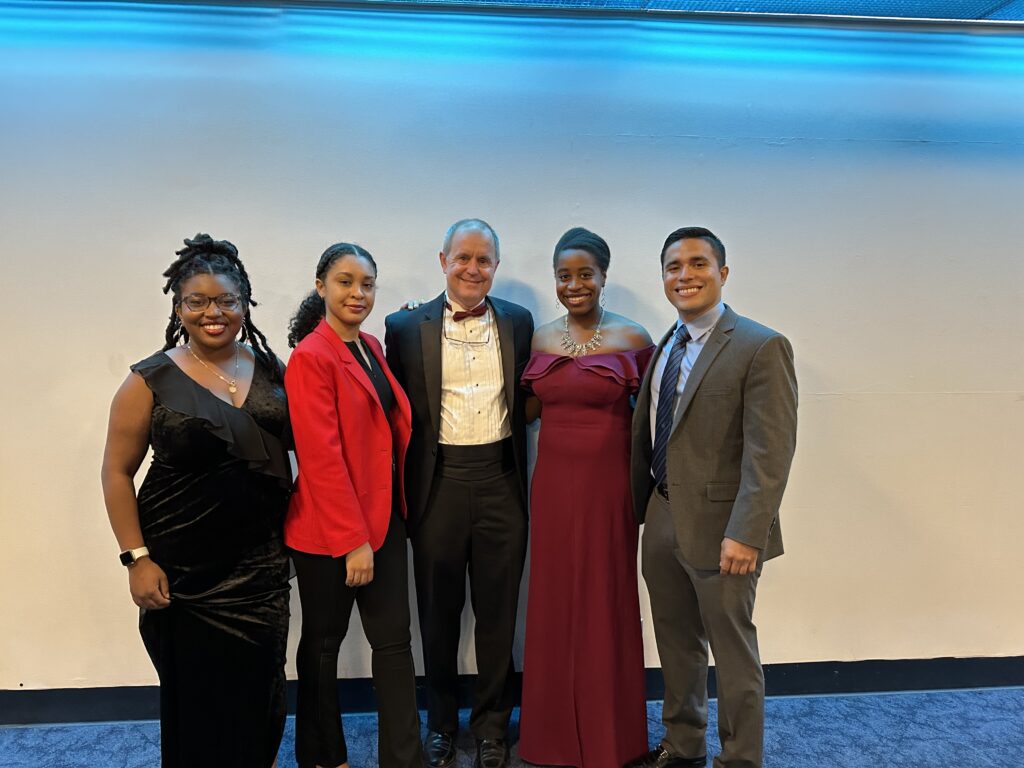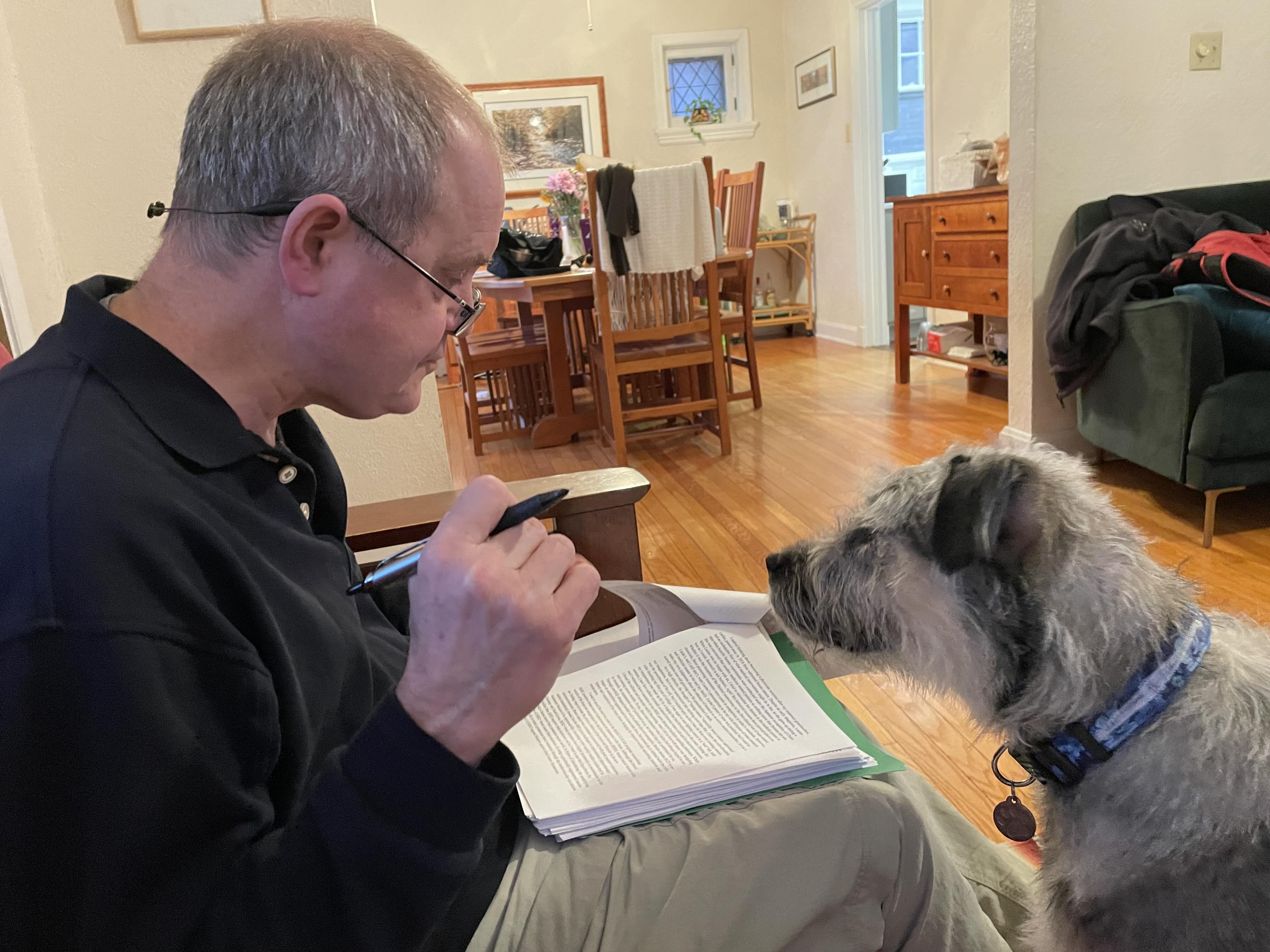The Drum Major Awards were created to recognize individuals at WashU School of Medicine who embody what it means to be an upstander. In a 1968 sermon in Atlanta titled “The Drum Major Instinct,” Dr. Martin Luther King stated, “Yes, if you want to say I was a drum major, say that I was a drum major for justice. Say that I was a drum major for peace. I was a drum major for righteousness.” On January 26, 2024, two faculty members in the Department of Genetics and the McDonnell Genome Institute were awarded a “Drum Major Award” by the 2024 Dr. Martin Luther King, Jr., Commemoration Planning Committee.
Their contribution to the community is inspiring to each one of us. To celebrate their accomplishments, we reached out to students and colleagues who have worked or interacted firsthand with Dr. Jim Skeath and Dr. Brett Maricque to hear their stories.

Brett Maricque | Assistant Professor of Genetics, McDonnell Genome Institute
Dr. Brett Maricque’s work focuses on developing community engagement, research, and education programs designed to connect local communities with genomic technology and medicine. Current projects include ethnographic approaches to build capacity among Black St. Louisans for community-centered genomic medicine. Maricque worked with young adults who were incarcerated at Riker’s Island, focusing on mental and physical health, emotional well-being, education, and social service delivery, and he has taught college-level human genetics, genomics, and data science courses in the Illinois and New York state prison systems.

Jim Skeath | Professor of Genetics, Co-Director of Initiative for Maximizing Student Development (IMSD)
Dr. Jim Skeath’s work focuses on creating excellent education programs for graduate and undergraduate students, especially students from under-represented groups. He has been director or co-director of the Developmental and Regenerative Stem Cell Biology PhD Program, the Molecular Genetics and Genomics PhD Program, and NIGMS-funded programs: the MARC U-STAR T34 Undergraduate Research Program, the IMSD PhD R25 Program, and the Cell and Molecular Biology PhD T32 Program. He is currently Assistant Dean in the Office of Diversity, Equity, and Inclusion.
Dr. Chelsey Carter (Assistant Professor of Public Health and Anthropology, Yale School of Public Health| Co-Principal Investigator, Black Genome Project)

One thing I admire about Brett is his ability to work with young people of all ages and get them excited about genetics, precision health, and racial equity in a meaningful way. We recently went to Atlanta for the Association of Public Health Annual Conference. We brought three high school students from our community partner, Black Girls Do STEM. Working with high school students on research, getting them to wake up and practice is not for the faint of heart. But Brett has such patience and care for young people in ways that I don’t think everyone is able to demonstrate. During one particular practice session, a student was so overwhelmed that she just froze while presenting. Brett took her under his wing and was super validating, “You got this, you have the information, let’s go practice.” With Brett’s pep talk, she went with one of our research coordinators to practice. She came back a different student. She presented with confidence, talked about what she learned from our book club and what doing research with the Black Genome Project in her hometown of St. Louis meant to her. It was a really beautiful experience watching Brett, an expert in genetics, instill confidence in a young person so that she felt empowered to share her experience and present with confidence.
Maame-Owusua Boateng (Postgraduate Researcher, Yale School of Public Health | Research Coordinator, Black Genome Project)

It’s really nice to see how the Black Genome Project’s research is done in a very equitable way because instead of going out testing Black people’s genetics samples and figuring out what elements they have, what diseases they have, the team focuses on taking a step back and figuring out what people even know about genetics in the first place. The project incorporates a lot of community outreach events and community partners such as Black Girls Do STEM. They brought high school Black girls to the McDonnell Genome Institute to learn about science, organize a monthly book club, educate them about racism and science and how they can go into STEM careers. One of the biggest accomplishments so far is that we brought girls from Black Girls Do STEM to the Association of Public Health Annual Conference to present with us. Brett is now pushing me career-wise to think about getting an MD/PhD with him in Genetics or some other field figuring out how many of my anti-Black studies can intertwine with research.
Dr. Tracey Hermanstyne (Assistant Dean, Academic Pathway Programs)

I consider Jim one of my closest mentors. When I first met Jim, I was a Postdoc at WashU and I was teaching an undergraduate class at the Danforth Campus. Even though I was not his direct student or trainee, Jim has helped my professional career development all along the way, such as getting to my professorship, finetuning my craft and finding my voice. Now we are both Assistant Deans in the Office of Diversity, Equity and Inclusion and I’ve been working with Jim for over 8 years. I have nothing but admiration for Jim. He does his work out of passion, and wanting to make our training program here at WashU a better place for everyone.
Kia Barclay (DBBS Student, TA for MARC u-STAR Class, IMSD Student Advisory Committee)
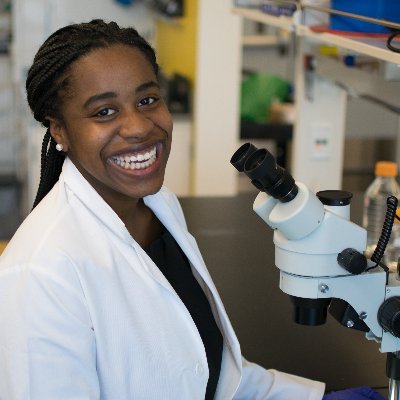
Back in 2019, I was a research technician at WashU. I traveled to California to present at the Annual Biomedical Research Conference for Minoritized Scientists (ABRCMS). At that time, I wasn’t a WashU student yet and Jim knew that I was there by myself. He reached out to me warmly at the conference and included me in all of the activities he was organizing with the students such as going to Six Flags and going out to dinners. It really stood out to me that even before I was officially a student at WashU, Jim welcomed me in. Knowing that people like Jim would advocate and look out for me helped solidify my decision to go to WashU for graduate school. Jim is very passionate about building a community for students and he hosts three to four dinners at his house each year. There are usually tons of students packed in his house. It’s always a good time!
Ananda Rankin (DBBS Student, IMSD Program)
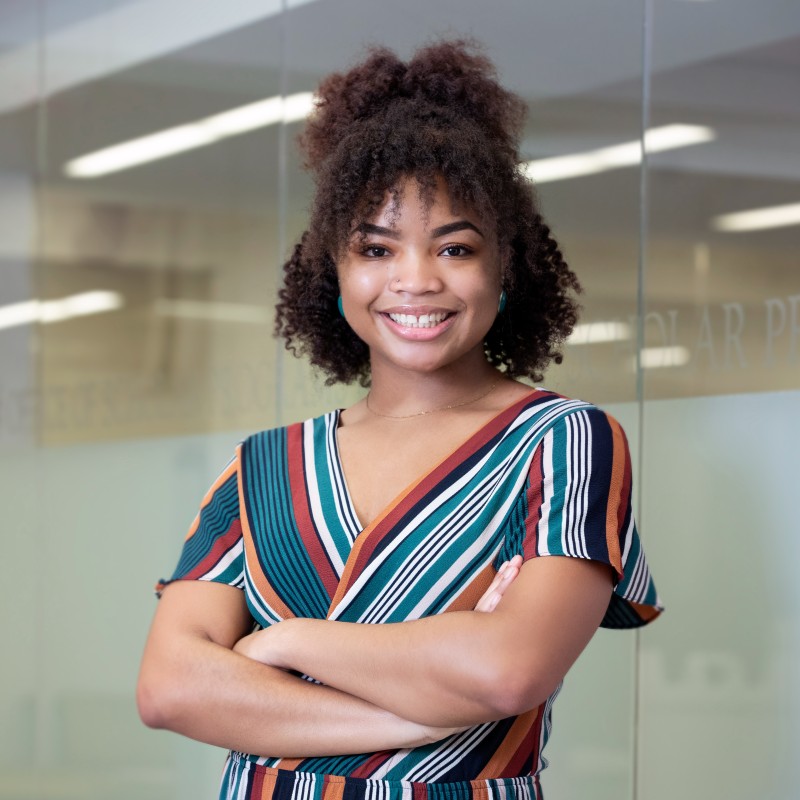
I first met Jim when I joined the IMSD program in August 2020. As a new student, we participated in a series of welcoming activities. One of them is called the “Culture Box” when we bring an item that is culturally important to us and talk about why they are important. It gives us a chance to see what everybody’s backgrounds are and see what other people value and hold dear. It was different from the majority of the activities I’ve done as a Micro student as a lot of them were academically focused and it felt like it wasn’t really a space for me to talk about what I like to do outside of science. It was clear that the culture box session was a space for us to get to know each other and make friends. Not only does Jim build a community where we feel a sense of belonging, he also genuinely shows kindness to people around him. In one of the outreach events called Rides and School Supplies when we do science demos at a community event in north Saint Louis, Jim gave me his fishing hat on a very hot day even though he also needed protection from the sun.
Chayla Vazquez (DBBS Student, IMSD Program)
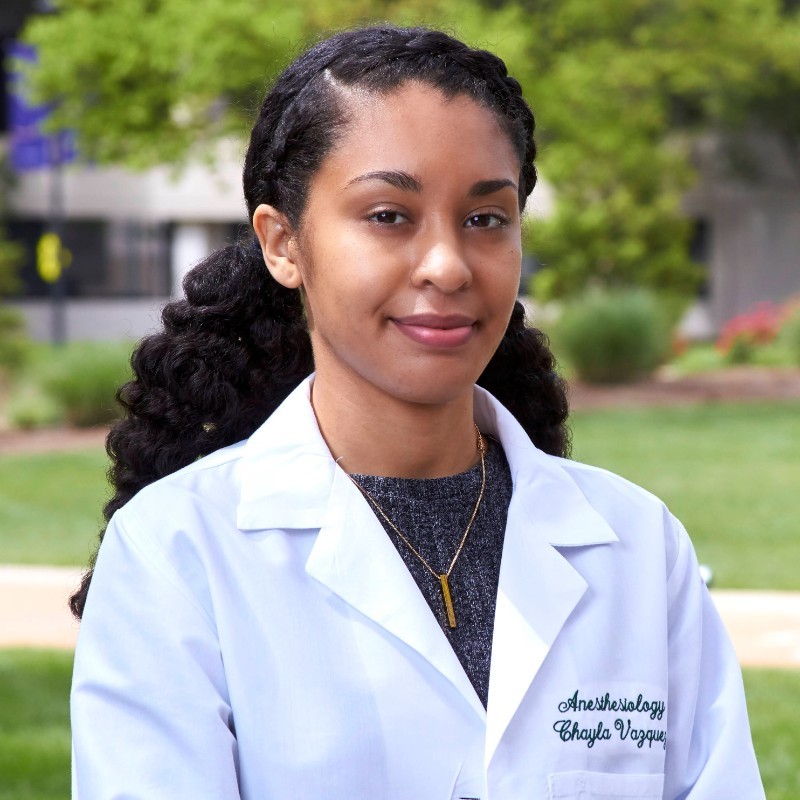
I met Jim when I started as a first year IMSD student. During the interview weekend and the revisit weekend, Jim made me feel that I will have a community at WashU through the IMSD program and he was going to be very supportive of the students. That was a big reason why I joined WashU. When I was doing my qualification exam and it was in the midst of the pandemic, I got a puppy thinking that it could help lift my spirit. However I didn’t think about who would watch my puppy if I had to visit family. So for the past four years, if I have to go to either a conference or to see my family, or anywhere, Jim has been my dog’s now “godfather”. He will watch my dog for me which is so beyond his responsibilities as a director of the program. He is supportive in ways you don’t even think about.
Daniel Veronese Paniagua (DBBS Student, IMSD Program)
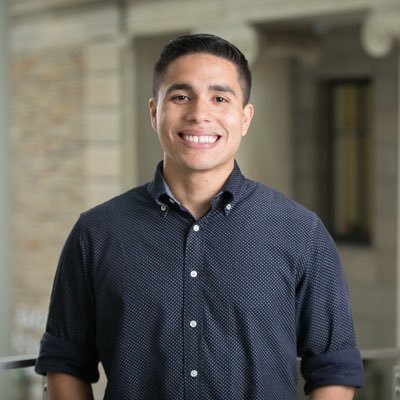
Jim is dedicated to the development of the next generation of scientists and he works closely with each one of his students. I took Jim’s Advanced Genetics class in Spring 2020. He has a unique teaching style, relating tough, complex scientific concepts to everyday life so it is very easy to understand. A fond memory I had of Jim is him as a guest speaker in one of my classes when I was an instructor. Although my students looked at me in a very professional manner, Jim came in and started joking with me. It made my students feel relaxed and at ease to ask questions. Many students from the programs that Jim has directed would always include an acknowledgement slide in their presentation that says “Thank you, Jim!” which speaks loudly about how great of a mentor Jim is to everyone.
